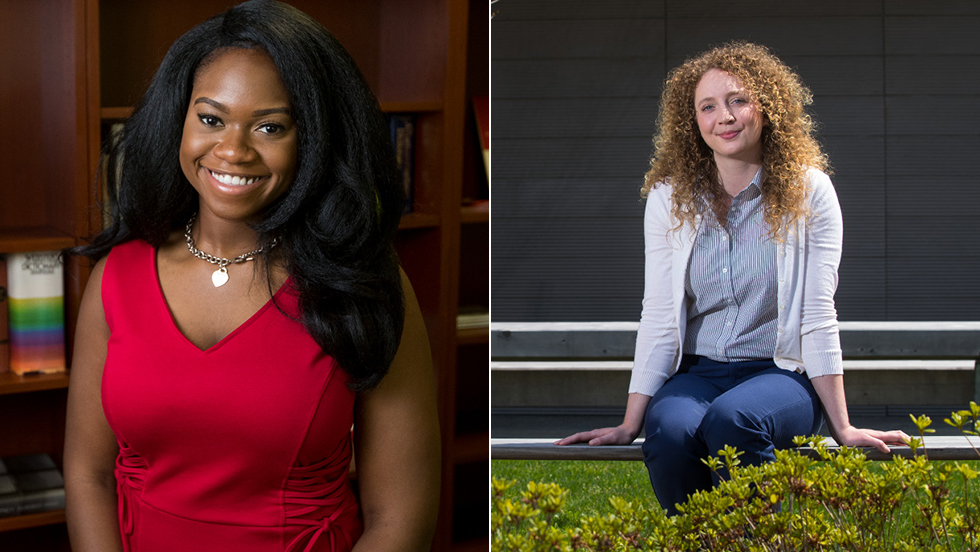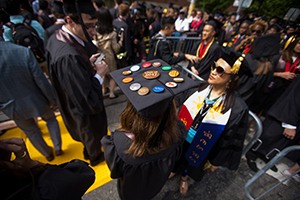Alexandria Volkening is also well acquainted with the concept of individuals coming together to create something larger than themselves. In fact, the theme even served as the focus of her doctoral thesis in applied mathematics.
Volkening studies pattern formation and self-organization in nature — the large-scale dynamics that emerge from the behavior of smaller-scale agents. Anyone who has watched flocks of starlings trace intricate patterns across the sky is familiar with the kinds of dynamics Volkening studies. These emergent dynamics are everywhere in nature, and a better understanding of them could shed new light on everything from wound healing to insect swarms to embryo development.
In some ways, however, graduate school represents an inverse phenomenon from the one Volkening studies. It’s a place, she says, where the larger community comes together to help forge individuals. In her speech, she hopes to express gratitude on behalf of her peers for the community that made their achievements possible.
“We’ve all gotten here because of the mentors, family members and friends who have been behind us,” she said. “So I want to say thank you to our families and mentors, but I also want to say congratulations because this is a community accomplishment. My mom didn’t go to college, but that day she’s getting a Ph.D. in me. Our mentors and communities are getting a Ph.D. through those of us in robes on Commencement day.”
Volkening says that the mentorship she received at Brown was critical to her success, and she made a point to seek out any mentoring opportunity she could find. She signed up for an outreach program in which she taught math to prison inmates. She saw it not only as a chance to help out in her community, but also as a chance to be mentored in teaching. She got involved in a program at Brown that helps graduate students learn to become undergraduate advisors. That was a chance to be mentored at mentoring.
Volkening will challenge her fellow graduates as they begin their careers to become the kind of mentors that made their degrees possible.
“I think that going to Brown and getting a Ph.D. is a privilege,” she said. “It gives us a special opportunity to have a voice. I think we should challenge ourselves to amplify other voices, especially those that are underrepresented.”
While Volkening says she relishes the chance to speak at graduation, she’s mindful that she has been chosen to express the sentiments of an extremely diverse community.
“I don’t think anyone can speak for the diversity of experiences and obstacles overcome in the graduating class,” she said. “But I think what we all share is gratitude for our experience here. That’s what I’m hoping to express.”

